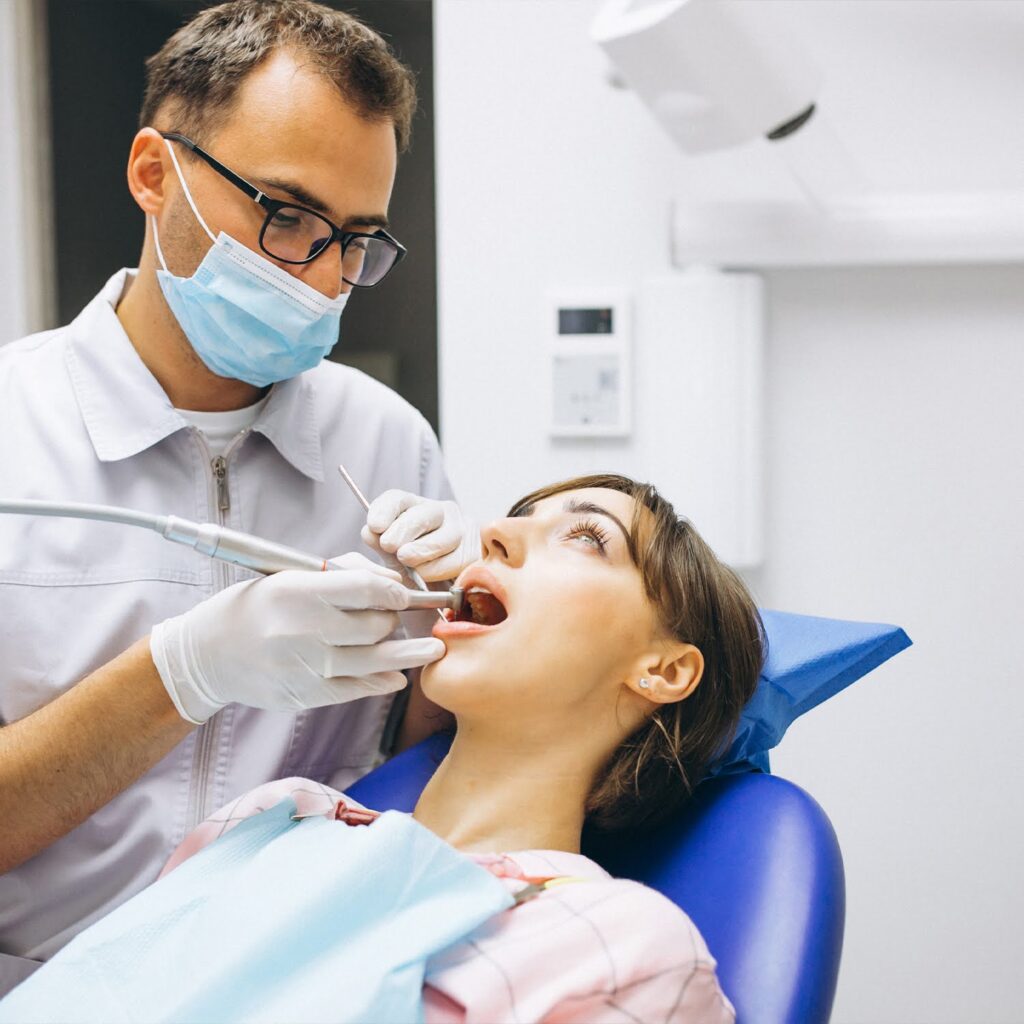
Introduction
Keeping your teeth healthy requires more than just brushing and flossing. Regular visits to the dentist play a crucial role in maintaining oral health and preventing major dental issues. But how often should you go? Many people assume that seeing the dentist once a year is enough, while others might wait until they feel pain. However, expert advice suggests that routine check-ups are necessary to keep your teeth and gums in top condition.
we’ll explore how often you should visit the dentist, factors that affect your dental visit schedule, and why regular check-ups are important.
Summary
1. The Standard Recommendation: Twice a Year
2. When Should You See the Dentist More Often?
3. Children’s Dental Care: Start Early, Visit Regularly
4. Senior Dental Care: Why It Becomes More Important
5. Signs That You Need an Immediate Dental Visit
6. What Happens During a Routine Dental Visit?
7. How to Maintain Good Oral Health Between Visits
8. The Cost of Skipping Dental Visits
1. The Standard Recommendation: Twice a Year

Most dentists and health organizations, including the American Dental Association (ADA), recommend visiting a dentist twice a year for routine check-ups and cleanings. This schedule works for most people with healthy teeth and gums.
The reason behind this recommendation is simple: prevention. Plaque and tartar build up over time, and regular cleanings help remove them before they cause damage. Additionally, dentists can spot minor issues like small cavities or early gum disease before they turn into major problems.
Skipping these visits might not seem like a big deal, but dental issues can develop silently. By the time you notice pain or discomfort, the problem could be much worse and require extensive treatment.
2. When Should You See the Dentist More Often?

While two visits a year work for many people, some individuals require more frequent dental check-ups. Several factors influence this, including:
Gum Disease (Periodontal Disease)
If you have gum disease, your dentist may recommend visits every three to four months. Gum disease can progress quickly, leading to tooth loss if left untreated. More frequent cleanings help keep bacteria and plaque under control.
A History of Cavities or Dental Work
People who frequently get cavities or have a history of fillings, crowns, or root canals should see their dentist more often. Regular visits help monitor old dental work and prevent new cavities from forming.
Braces or Other Orthodontic Treatments
Wearing braces or aligners makes cleaning your teeth more challenging. Food particles can get stuck easily, increasing the risk of cavities and gum issues. Orthodontic patients should see their dentist more often to ensure their teeth remain healthy.
Diabetes and Other Health Conditions
People with diabetes are at higher risk of gum disease due to reduced blood circulation and slower healing. If you have diabetes, your dentist may suggest more frequent cleanings to prevent gum problems.
Pregnancy and Hormonal Changes
Pregnancy causes hormonal shifts that can lead to pregnancy gingivitis, a condition where gums become swollen and bleed easily. Pregnant women should schedule extra dental visits to keep their gums healthy.
3. Children’s Dental Care: Start Early, Visit Regularly

Many parents question the right time to take their child to the dentist. The answer: as soon as their first tooth appears, or by their first birthday. Early dental visits help detect any potential problems and ensure proper tooth development.
After their initial visit, children should visit the dentist twice a year. Regular check-ups allow the dentist to monitor their growing teeth, apply fluoride treatments, and teach good oral hygiene habits.
Children are also prone to cavities due to their diet and lack of proper brushing techniques. Regular dental visits help prevent tooth decay and ensure a lifetime of healthy smiles.
4. Senior Dental Care: Why It Becomes More Important

As we age, our dental needs change. Many seniors experience tooth loss, gum disease, and dry mouth due to medications or medical conditions. Regular dental visits are crucial to maintaining oral health in older adults.
Seniors with dentures or dental implants should visit the dentist regularly to ensure proper fit and check for any gum infections. Additionally, conditions like osteoporosis can affect jawbone density, making dental check-ups even more essential.
5. Signs That You Need an Immediate Dental Visit

Even if you follow a regular dental check-up schedule, there are times when you should see a dentist immediately. Some dental problems require urgent care to prevent further damage. Here are some warning signs that mean you should schedule a visit as soon as possible:
- Tooth pain or sensitivity: Persistent pain might indicate a cavity, infection, or cracked tooth.
- Bleeding or swollen gums: This could be a sign of gum disease, which needs immediate attention.
- Bad breath that won’t go away: Chronic bad breath may indicate underlying dental issues or infections.
- Loose or shifting teeth: Teeth should never feel loose in adults. This may indicate gum disease or bone loss.
- Mouth sores that don’t heal: Non-healing sores could be a sign of an infection or, in rare cases, oral cancer.
Ignoring these symptoms can lead to severe dental problems and costly treatments. Always schedule a visit if something doesn’t feel right.
6. What Happens During a Routine Dental Visit?

A standard dental check-up includes two main parts:
Dental Examination
The dentist checks your teeth, gums, tongue, and mouth for any signs of decay, gum disease, or oral cancer. X-rays may also be taken to detect hidden problems like cavities between teeth.
Professional Cleaning
A dental hygienist removes plaque and tartar from your teeth using special tools. This process helps prevent cavities and gum disease. Your teeth are then polished and flossed for a fresh, clean feeling.
Regular dental visits ensure your mouth stays healthy and free from serious issues.
7. How to Maintain Good Oral Health Between Visits

While dental check-ups are essential, daily care at home is just as important. Follow these tips to keep your teeth in top shape between visits:
- Brush twice a day with fluoride toothpaste.
- Floss daily to remove food particles between teeth.
- Use an antibacterial mouthwash to eliminate germs and keep your breath fresh.
- Limit sugary snacks and drinks to lower the risk of cavities.
- Stay hydrated by drinking plenty of water to wash away food particles and maintain oral health.
A good oral hygiene routine helps maintain a healthy smile and reduces the need for major dental treatments.
8. The Cost of Skipping Dental Visits

Some people skip dental visits due to fear, time constraints, or cost. However, avoiding regular check-ups can lead to much higher costs in the long run.
For example, a small cavity that could have been fixed with a simple filling might turn into a serious infection requiring a root canal or extraction. These procedures are not only more expensive but also more painful.
Regular check-ups save you money by preventing bigger dental problems. Investing in routine care now can help you avoid costly and painful procedures later.
FAQs
Q.1. How often should I visit the dentist if my teeth feel fine?
A.1. Even if you have no pain, visiting the dentist twice a year helps prevent future problems.
Q.2. What happens if I skip dental visits for a few years?
A.2. Skipping visits can lead to cavities, gum disease, and even tooth loss. Regular check-ups help prevent serious issues.
Q.3. Can I go to the dentist once a year instead of twice?
A.3. While some people may get by with yearly visits, most experts recommend twice a year for proper oral health.
Q.4. Do kids need to visit the dentist as often as adults?
A.4. Yes! Kids should see a dentist every six months to prevent cavities and promote healthy tooth development.
Q.5. Are dental check-ups covered by insurance?
A.5. Many dental insurance plans cover routine visits. Check with your provider to see what’s included in your plan.
Conclusion
So, how often should you visit the dentist? Expert advice suggests at least twice a year for most people. However, those with specific conditions like gum disease, braces, or diabetes may need more frequent check-ups.
Regular visits keep your teeth and gums healthy, prevent serious problems, and save you from costly treatments in the future. Prioritizing dental care ensures a bright, confident smile for years to come!
For customized support or to book a consultation, feel free to call us at (267) 908-4867 or visit our website: https://premierperiodonticspa.com/contact-us/. We prioritize your smile and are dedicated to delivering exceptional care for a smooth dental journey. Trust our expert team to help you achieve a radiant, healthy smile with personalized treatment.









